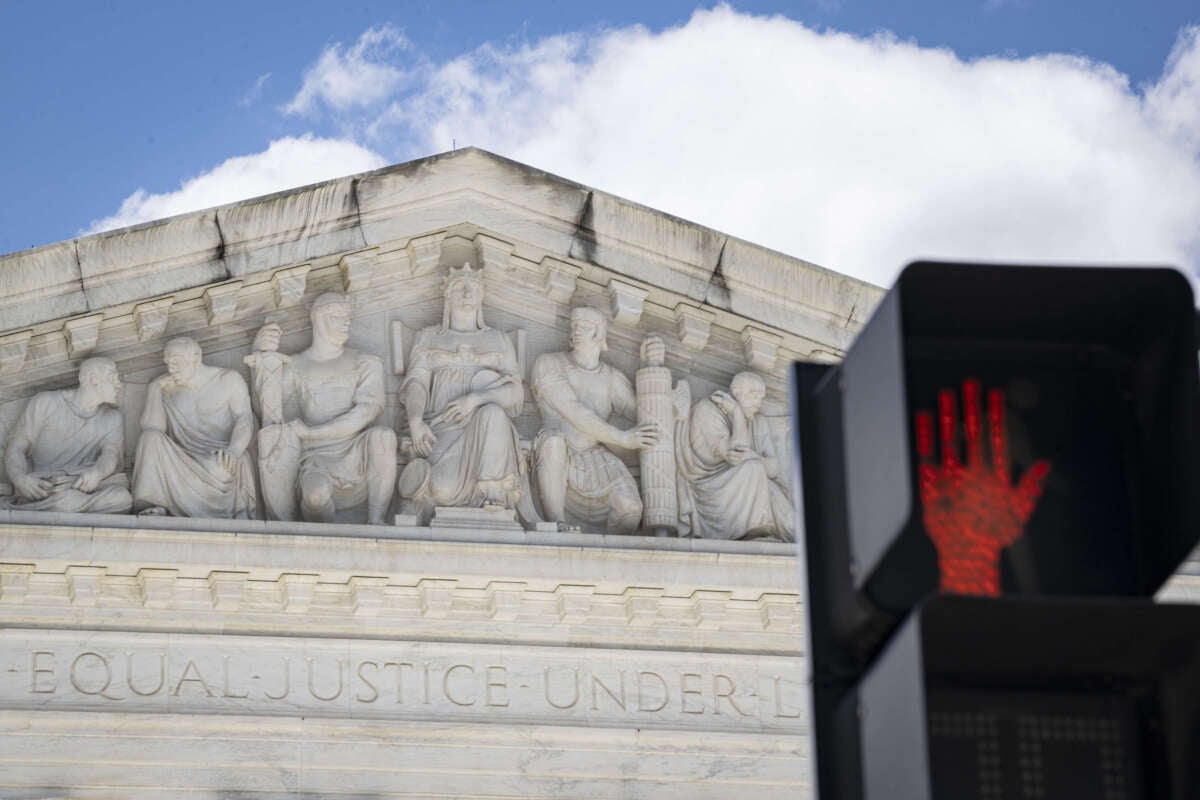Support justice-driven, accurate and transparent news — make a quick donation to Truthout today!
In an op-ed published on Monday morning, President Joe Biden announced his support for a series of reforms to the Supreme Court, including establishing term limits for justices.
Biden opened his op-ed, which appeared in The Washington Post, by stating that “no one is above the law.”
“Not the president of the United States. Not a justice on the Supreme Court of the United States. No one,” Biden wrote.
The president then referenced the recent Supreme Court ruling on presidential immunity, which established that a former president cannot be held accountable for criminal actions done in office if they utilized the power of the presidency to engage in them. In making the case for reform, Biden also cited other far right decisions by the court, including the overturn of Roe v. Wade, as well as the multitude of ethics scandals on the court that have made headlines in recent months.
“What is happening now is not normal, and it undermines the public’s confidence in the court’s decisions, including those impacting personal freedoms,” Biden said. “We now stand in a breach.”
Biden suggested he had the bona fides to make calls for reform, noting his long political history dealing with the Supreme Court. Said Biden:
I served as a U.S. senator for 36 years, including as chairman and ranking member of the Judiciary Committee. I have overseen more Supreme Court nominations as senator, vice president and president than anyone living today. I have great respect for our institutions and the separation of powers. … [But] in the face of increasing threats to America’s democratic institutions, I am calling for three bold reforms to restore trust and accountability to the Court and our democracy.
The president called for three reforms:
- The passage of a constitutional amendment, called the No One Is Above the Law Amendment, which would essentially overturn the court’s ruling on presidential immunity;
- The establishment of 18-year term limits for Supreme Court justices (noting that such limits would “ensure that the court’s membership changes with some regularity,” making them “more predictable and less arbitrary”); and
- Creating a “binding code of conduct for the Supreme Court” to replace the current voluntary system of justices determining for themselves whether they’ve violated rules they’re supposed to follow.
“We can and must prevent the abuse of presidential power. We can and must restore the public’s faith in the Supreme Court. We can and must strengthen the guardrails of democracy,” Biden concluded.
Vice President Kamala Harris, who is now the Democratic Party’s presumptive nominee for president in the 2024 election, endorsed Biden’s proposals, indicating that Supreme Court reform could become an important issue on the campaign trail.
“There is a clear crisis of confidence facing the Supreme Court…These popular reforms will help to restore confidence in the court, strengthen our democracy and ensure no one is above the law,” Harris said in a statement.
Former president and current GOP nominee for president Donald Trump has blasted such reforms in the past, baselessly describing them as an attempt “to interfere in the Presidential Election, and destroy our Justice System.”
Despite Trump’s claims, however, an overwhelming number of Americans support reforms to the High Court.
According to a Stand Up America/Hart Research poll from May, 53 percent of voters believe Congress should enact reforms to the court, while only 36 percent say they are opposed to such an action.
Sixty-four percent of voters back specific calls for term limits for justices of the court — indeed, a majority of every ideological demographic measured backed that reform, including self-described liberal voters (82 percent), conservatives (51 percent) and moderates (65 percent). The idea of term limits was embraced by 65 percent of swing state voters, the poll found, with only 30 percent of voters in those states opposed.
Kermit Roosevelt, a professor of law at the University of Pennsylvania and an expert in constitutional studies, lauded Biden’s efforts to change the Supreme Court, specifically on the issue of term limits.
“I think that term limits are an important and much-needed reform,” Roosevelt said in comments to Truthout. “The key point about them is that they will equalize the impact each President has on the Court, so that we won’t get a Court representing fringe views the American people have rejected.”
“I wish that we had done this earlier,” added Roosevelt, who is a great-great-grandson of President Theodore Roosevelt. “Term limits will eventually give us a Court that the American people can respect, but it would take a while to see their effects.”
Media that fights fascism
Truthout is funded almost entirely by readers — that’s why we can speak truth to power and cut against the mainstream narrative. But independent journalists at Truthout face mounting political repression under Trump.
We rely on your support to survive McCarthyist censorship. Please make a tax-deductible one-time or monthly donation.
